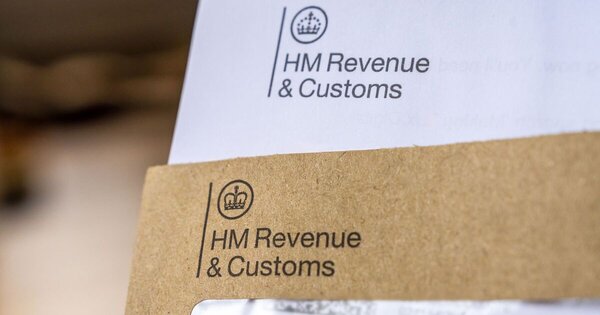Let’s Break This Down Together...
Missing the tax return deadline in the UK can cause big headaches and expensive penalties. You might wonder what really happens if you don’t file on time and how to fix it if you slip up.
This guide explains who needs to file a tax return, the penalties you could face if you’re late, and how to appeal or sort things out quickly. It also covers valid excuses, practical steps to catch up, and key tips to stay penalty-free in the future.
By understanding the rules and your rights, you can avoid unnecessary fines and stress and keep your tax affairs in good shape. Let’s dive in and make it all a lot less scary!
Who Needs to File a Tax Return?
Filing a tax return is a legal obligation for anyone with taxable income that isn’t fully taxed at source. You must file a self-assessment tax return if you’re self-employed, a sole trader, or a partner in a business partnership. You’re also required to file if you receive rental income, have significant savings or investment income, or make capital gains from selling assets like property or shares.
Other situations that require a tax return include receiving income from abroad, claiming certain tax reliefs, or if you have untaxed income that needs to be declared. Even if you’re employed and pay tax through PAYE, you may still need to file a tax return if your total taxable income exceeds certain thresholds or you have additional sources of income.
It’s important to check your tax status each tax year to determine if you need to file a tax return. Failing to do so can result in late filing penalties and other financial consequences.
The Immediate Consequences of Missing the Tax Deadline
When you miss the 31 January Self Assessment deadline, HMRC automatically issues a £100 fixed penalty. This applies even if you don’t owe any tax at all. However, if there is tax unpaid, further late payment penalties and charged interest will accrue until the outstanding amount is paid.
Your tax account gets flagged in HMRC’s system, marking you for potential follow-up. This puts you on their radar for additional checks.
If you owe tax, interest starts building up right away. The current interest rate sits at 7.75%, which adds up quickly on larger tax bills. Interest is charged on tax unpaid from the due date until the amount is fully paid. In addition to interest, late payment penalties may also apply if you miss the payment dates.
HMRC will send reminders through your online account, post, or email. These notices become increasingly stern as time passes. If the tax remains unpaid, HMRC will continue to charge interest and may apply additional late payment penalties.
Paying any outstanding tax as soon as possible is important to minimise penalties and interest.

The Escalating Timeline
After three months (from May onwards), daily penalties of £10 begin. These can continue for up to 90 days, potentially adding another £900 to your bill. If your assessment tax returns have not been submitted or filed by this point, the following penalties will apply to both individuals and businesses.
At the six-month mark (August), you’ll face an additional penalty of either £300 or 5% of the tax you owe – whichever is higher.
When you hit 12 months late, another £300 or 5% penalty applies. In the most serious cases, the maximum penalty can reach 100% of your tax due.
By this point, HMRC may have issued a “determination” – their estimate of what you owe. These estimates are typically higher than your actual tax bill would be. If the return is still not filed after these notices, additional penalties may be applied. Once the return is finally filed or submitted, penalties may stop accruing, but any existing penalties and interest remain payable.
Taxpayer Rights and Responsibilities
Every taxpayer in the UK has both rights and responsibilities when it comes to managing their tax affairs. You have the right to appeal against any penalty or tax decision you believe is incorrect, and you can request a review of your assessment if you think there’s been a mistake.
HMRC provides clear processes for submitting appeals and reviewing decisions, ensuring your concerns are heard.
On the responsibility side, you must keep accurate records of your income, expenses, and any relevant financial documents. Filing your tax return on time is essential to avoid penalties and interest charges. If you’re self-employed or have complex tax affairs, it’s especially important to stay organised and up-to-date with your tax obligations.
If you’re unsure about any aspect of your tax return or assessment, seeking professional advice can help you avoid costly errors. Remember, understanding your rights and responsibilities is key to staying compliant and avoiding unnecessary penalties from HMRC.

Valid Reasons for Filing Late
HMRC does accept some “reasonable excuses” for late filing, but only a valid reason will be accepted for avoiding penalties. Serious illness, hospital stays, or unexpected bereavements might qualify.
Technical issues like HMRC website failures or software problems immediately before the deadline can be valid reasons. I once received penalty cancellation when HMRC’s system crashed on deadline day.
Natural disasters or fires affecting your home or business premises may also be accepted. Remember, you must file your return as soon as possible after the reasonable excuse ends.
If you wish to appeal a penalty, you should use the appeal form provided with your penalty notice. If you miss the appeal deadline, you may still be able to make late appeals, but you must provide a strong justification for the delay.
The excuse only covers the period of the issue itself. HMRC expects you to make arrangements to file promptly once the obstacle is removed. If HMRC rejects your appeal, you can escalate the matter to the first tier tribunal for an independent review.
How to Fix a Missed Tax Return
File your return immediately, even if it’s very late. This stops daily penalties from continuing to build up.
Make sure you have told HMRC about any issues or errors as soon as possible, as prompt communication can impact how penalties are assessed.
Pay any tax owed as soon as possible to prevent interest from growing. If you can’t pay the full amount, contact HMRC about a Time to Pay arrangement.
HMRC may consider special circumstances when reviewing your case, which could lead to a reduction in penalties if your situation is uncommon or exceptional.
Consider getting professional help if you’re dealing with multiple years of unfiled returns. A tax professional can help sort out your situation quickly, and both individuals and businesses may benefit from expert advice to ensure compliance and avoid further penalties.
Final Checklist and Recommendations
Before you submit your self assessment tax return, run through this essential checklist to make sure everything is in order:
- Gather all necessary documents, such as your P60, P45, invoices, and bank statements.
- Accurately calculate your total taxable income and allowable expenses for the tax year.
- Claim all eligible allowances and reliefs to reduce your tax liability.
- Double-check your tax return for any errors or discrepancies before submitting.
- Submit your tax return by the self assessment deadline to avoid late filing penalties.
- Keep copies of your tax return and supporting documents for at least six years, as required by HMRC.
By following this checklist and acting as soon as possible if you encounter any issues, you can avoid late filing penalties, interest on unpaid tax, and other complications.

Final Thoughts
Missing tax return deadlines creates unnecessary stress and expense. What starts as a simple £100 fine can quickly grow into thousands in penalties and interest.
HMRC generally responds well to people who address their mistakes promptly. The worst approach is ignoring the problem – it won't go away and will only get more expensive.
If you're struggling with tax compliance, professional advice or digital tools can help. These resources can get you back on track and keep you there in future years.
Pie.tax: Simplifying Tax Penalty Management
Dealing with tax penalties can be stressful, but you don't have to face them alone. The UK's first personal tax app helps keep you penalty-free with timely reminders.
Pie offers real-time tax monitoring that alerts you well before deadlines approach. Our bookkeeping makes gathering your financial information quick and painless.
We provide direct HMRC filing to ensure your return reaches the tax office securely and on time. You'll receive confirmation receipts for your peace of mind.
Our simple dashboard shows your tax position year-round, so you're never caught off guard. Curious about how it works? Explore the Pie.tax app to see how we can help keep your tax affairs in perfect order.











